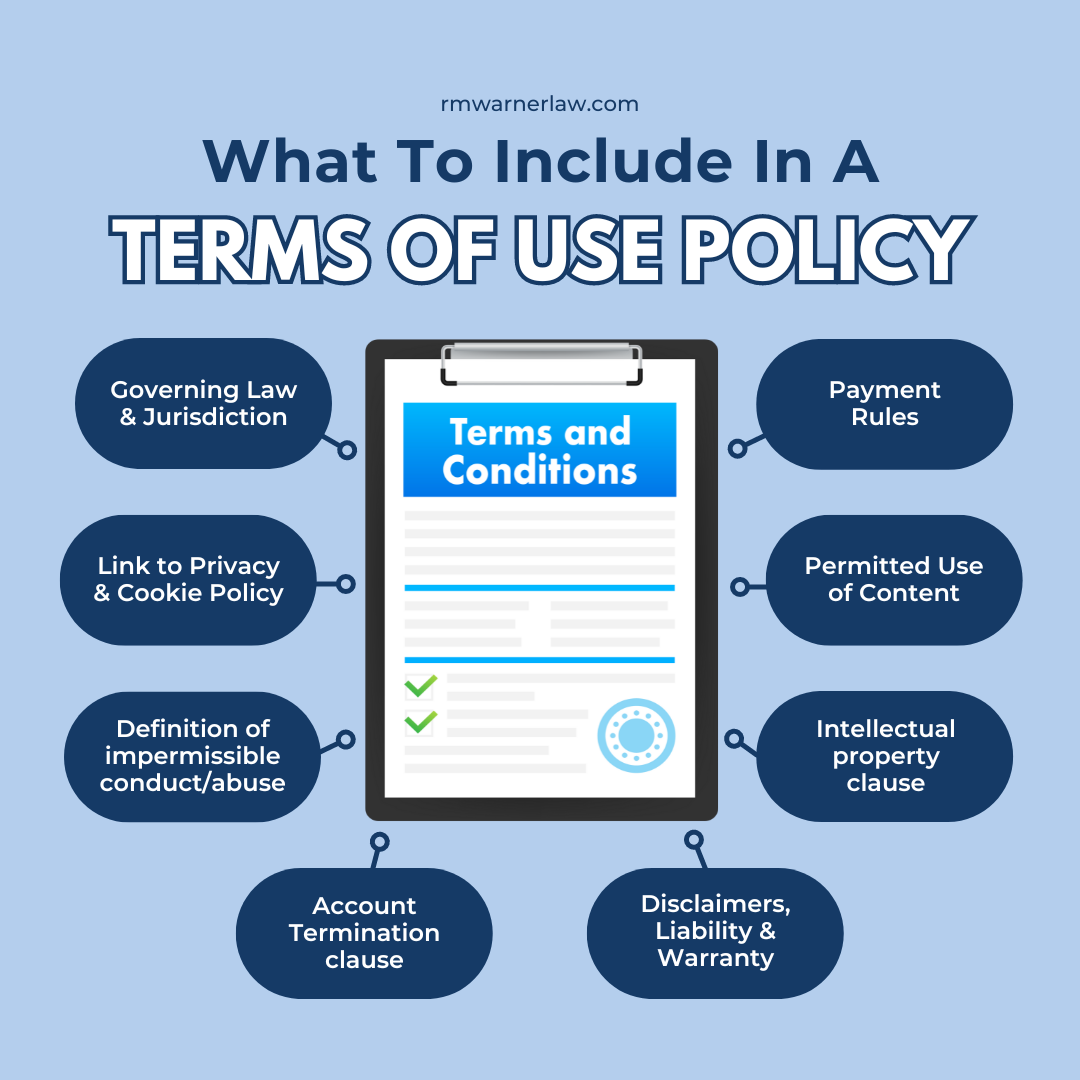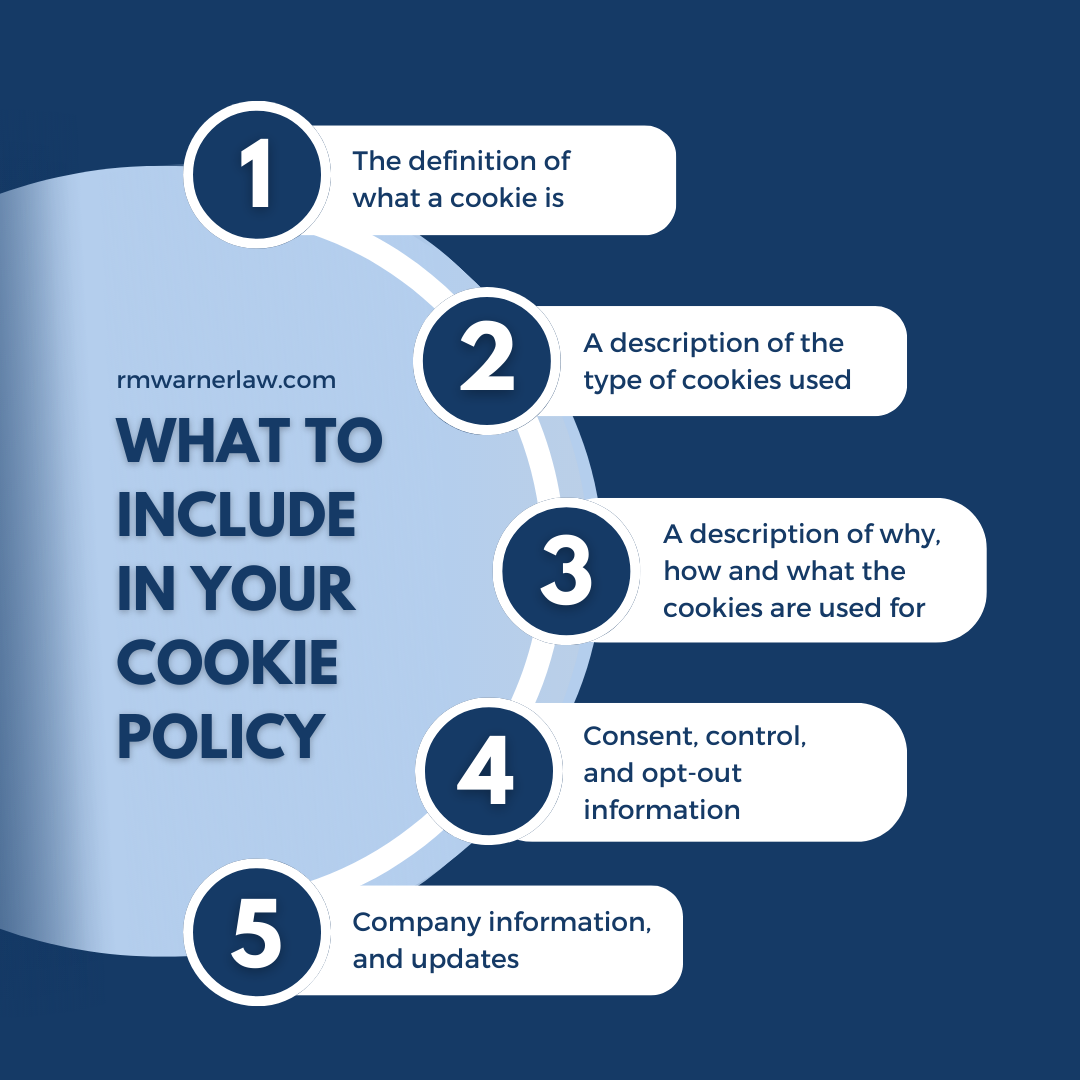5 Essential Agreements Every E-Commerce Site Should Have
5 Essential Agreements Every E-Commerce Site Should Have

Businesses operating e-commerce websites should ensure that they have agreements in place to protect, not only their businesses and profits, but also their customers. Different agreements apply depending on the type of business and the industry within which it operates. An experienced e-commerce lawyer can guide you through the applicable agreements. Below, we’ll discuss five agreements essential for any e-commerce website.
1. Terms of Use
 A website’s terms of use (TOU), also known as terms and conditions and terms of service, is one of the most important policies and should be established immediately. TOUs set out the rules governing a website’s operation and how users participate. The TOUs are not mandatory by law; however, having them is crucial – they protect the website owner and users from costly liability. The TOUs represent an agreement between the website operator and users and are legally binding. Any violation of the TOUs can result in legal consequences.
A website’s terms of use (TOU), also known as terms and conditions and terms of service, is one of the most important policies and should be established immediately. TOUs set out the rules governing a website’s operation and how users participate. The TOUs are not mandatory by law; however, having them is crucial – they protect the website owner and users from costly liability. The TOUs represent an agreement between the website operator and users and are legally binding. Any violation of the TOUs can result in legal consequences.
The clauses to include in your TOU policy are:
- Termination of accounts
- Intellectual property ownership
- Links to other websites
- Liability disclaimers/limitation
You may be tempted to use a one-size-fits-all approach. However, it’s best to tailor your agreement to your specific business and clientele.
2. Privacy Policy
Privacy policies protect the website owner and users. They are mandatory, especially for websites that collect or use visitors’ private information. Privacy policies establish the type of information collected and how it is stored and used. Two regulations guiding e-commerce websites in developing privacy policies are the US’s general data protection regulation (GDPR) and Children’s Online Privacy Protection Rule (COPPA). GDPR governs a website’s interaction with US users. Meanwhile, COPPA, intended to protect the privacy and security of children online, makes it illegal for websites to collect certain personal information from children under 13 years without their parent’s consent. E-commerce sites operating without a clear privacy policy that meets legal requirements can face stiff penalties.
3. Cookies Policy
 Cookies are small files containing information about a user’s online viewing habits. The files are held on the user’s browsing device and can help website owners track, personalize and save information about the user’s visit to a website. Cookies provide a more personalized browsing experience. Website owners — particularly those who trade globally — must disclose, in their cookie policy, details about the cookies they use to collect information.
Cookies are small files containing information about a user’s online viewing habits. The files are held on the user’s browsing device and can help website owners track, personalize and save information about the user’s visit to a website. Cookies provide a more personalized browsing experience. Website owners — particularly those who trade globally — must disclose, in their cookie policy, details about the cookies they use to collect information.
The Federal Trade Commission mandates that e-commerce websites that use cookies for third–party tracking for advertising and affiliate sales must make it known to visitors. Failure to do so can result in a violation of the FTC Act, and website owners can face harsh consequences. The US’s Cookies Directive mandates that e-commerce sites that target US citizens must have a standalone cookies policy.
4. Payment Terms
The payment terms can be a standalone policy or included in your terms and conditions. Regardless, payment terms must be prominently displayed for the user’s benefit. They contain the terms that govern payment for goods or services. This includes how payments are made, the type of payment methods accepted, conditions for missed payments and how payment disputes are handled.
5. Return/Refund Policy
It is essential for e-commerce sites that sell products to have a return/refund policy that customers can easily access. A reasonable return/refund policy builds trust and indicates your commitment to your customer base.
The terms to cover in your return/refund policy should include:
- Whether or not you offer returns
- Time limits for the return of items
- Whether the client will get a refund, partial refund or credit
- Who pays for shipping or returns
- Procedure for returns
- In what condition must the product be returned
Draft Your Agreements with an E-commerce Business Lawyer
Formulating your e-commerce agreements to ensure your business is legally covered takes experience and know-how. RM Warner Law’s experienced and knowledgeable e-commerce lawyers can help you draft comprehensive agreements to meet your website’s needs. Call us toll-free at 1-866-570-8585 or complete our online form to request a consultation.
Similar like this
You also might be interested in
Why Hiring an Internet Defamation Lawyer Could Be the Right Move
These days, many of us live part of our lives [...]
Can You Sue an Anonymous Author for Libel? What You Need to Know
The internet makes it easy for anyone to post content [...]
What Does an Internet Law Firm Do? How We Protect Your Online Reputation and Business
How RM Warner Protects Your Online Reputation and Business Navigating [...]
Instagram’s Terms of Service: What You’re Really Agreeing To
Are you guilty of clicking "I Agree" to the terms [...]














